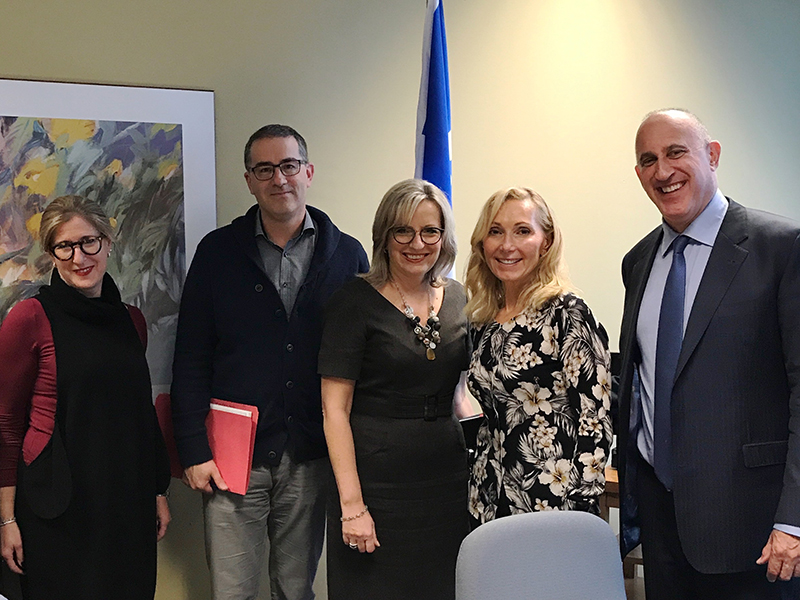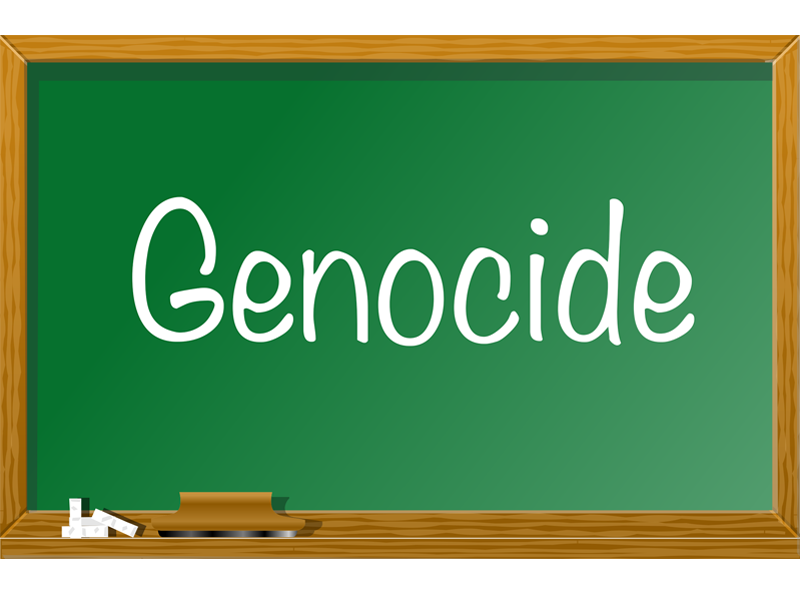A grassroots organization that is trying to persuade the Quebec government to make instruction about genocide mandatory in all high schools says it has achieved a “breakthrough.”
Heidi Berger, founder of the Foundation for the Compulsory Study of Genocide in Schools, has been trying to find a sympathetic ear within the province’s education ministry for three years.
In October, representatives of the foundation finally met with Anne-Marie Lepage, assistant deputy minister for elementary and secondary education, Georges Lemieux, director for intercultural education, and other ministry officials.
“The meeting was a surprising success. The ministry offered to partner with our foundation to form a pedagogical working committee, to create a collection of resources and a manual for teacher training,” said the foundation’s communications co-ordinator, Marcy Bruck.
“Having the government working on this with us makes it more likely that (genocide) will be taught by the teachers. This is the next logical step in our mission and a breakthrough in our progress.”
The task now is to put together a committee of educators and other experts to work with the foundation and ministry in developing pedagogical materials on mass atrocities that are recognized by Canada as genocides. “We want to make it appealing for teachers to teach this subject,” Berger said.
READ: FEDERAL GOVERNMENT PLEDGES $257K FOR NATIONAL HOLOCAUST EDUCATION
Lemieux confirmed that intercultural education consultant Sarah Mainich will co-ordinate the effort.
“Thanks again for your commitment towards this important cause, and for your patience,” he wrote.
At present, whether or not genocide is even touched on is at the discretion of the individual teacher, she said. In fact, scant attention is given to the history of the Second World War in the provincial curriculum, noted Berger, who from the outset knew that getting a specific teaching module on genocide would be – and still is – an uphill battle. But she is tenacious.
The foundation believes that studying the subject is “a means to creating a tolerant and peaceful society, which is accepting of all cultures and religions.”
Bruck added that, “Lepage was in agreement with our arguments of the urgency of this subject being taught effectively, as a means towards preventing radicalization and further intolerance in our multicultural society. She was especially impressed by the need to address the rising rates of anti-Semitic incidents in Quebec.”
The most likely course in which genocide would be covered is the mandatory Grade 11 contemporary world course. Currently, its guide has little more than a paragraph on genocide, Bruck said.
‘The meeting was a surprising success.’
It’s been a long road for Berger, the daughter of Holocaust survivors, who has been going to schools in the Montreal area and beyond for eight years, talking about the Holocaust to kids in Grade 9 and up.
Her inspiration continues to be her mother, Anna Kazimirski, who spent many years talking to young people about her experience in the ghettoes of Poland, as a volunteer with the Montreal Holocaust Memorial Centre, before she died in 2006.
Berger has been continuing that mission voluntarily, independently and at her own expense.
In 2014, Berger created the foundation, a registered charitable organization, which is administered by the Jewish Community Foundation of Montreal.
While the Holocaust was her initial focus, Berger soon realized that students were not only ignorant of the Shoah, but that they also knew little or nothing about other genocides.
More worrisome to her was that teachers often had little knowledge about the subject, too. She did, however, find that many wanted to teach the Holocaust and other genocides, but didn’t feel equipped to tackle such a vast, sensitive topic.

Those teachers who do cover the Holocaust or other genocides do so on their own initiative, conducting their own research and creating their own materials, she said.
Berger, a video producer who teaches communications part time at Concordia University, grew up in Ste-Agathe, Que., and is fluent in French.
While getting an audience with a high-ranking bureaucrat was tough, representatives of the foundation met last year with four cabinet ministers, including Education Minister Sébastien Proulx.
“He is a history buff. He recognizes the importance,” Berger said of Proulx, who became education minister in February 2016.
Liberal MNA David Birnbaum has also been helpful. He presented a petition to the national assembly, on behalf of the foundation, which included 2,000 signatures.
No province has a mandatory genocide course, Berger said. But an optional course is offered to senior high school students in Ontario.
While the education ministry has given the go-head to form the committee, Berger notes that her foundation will have to pick up the cost, including paying for substitutes when member teachers are absent for committee meetings.
